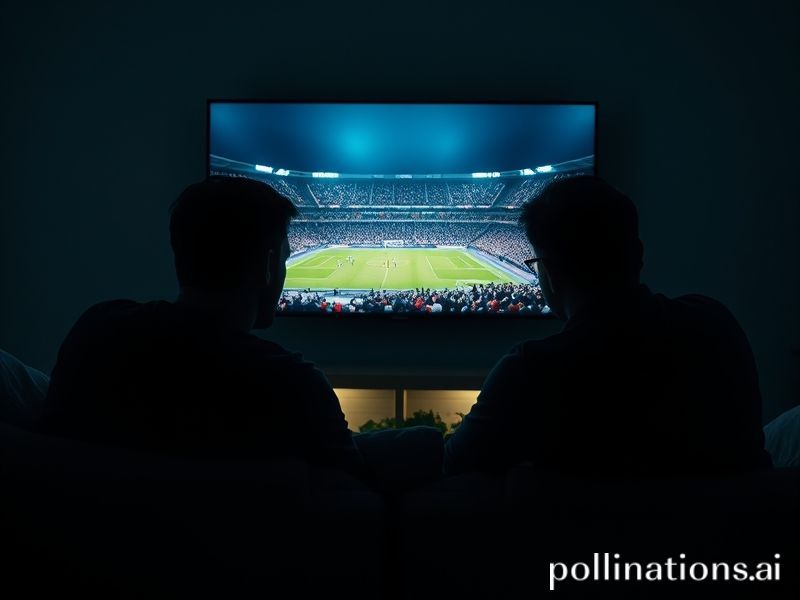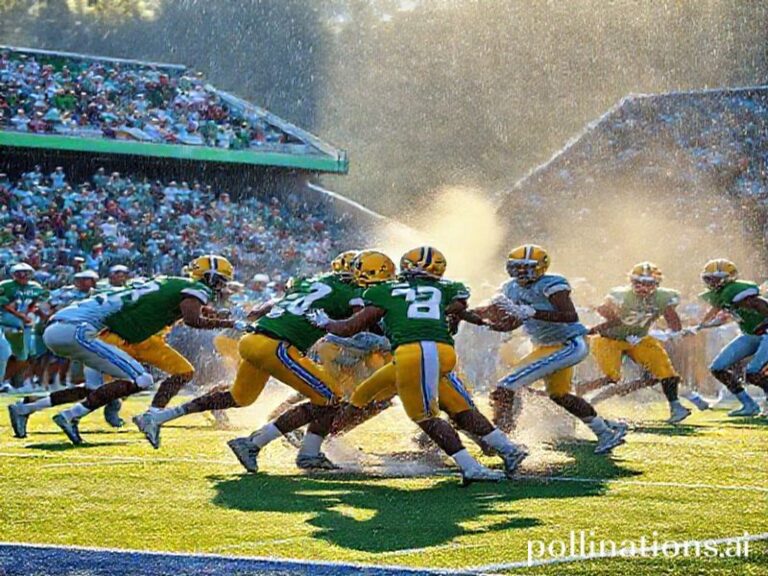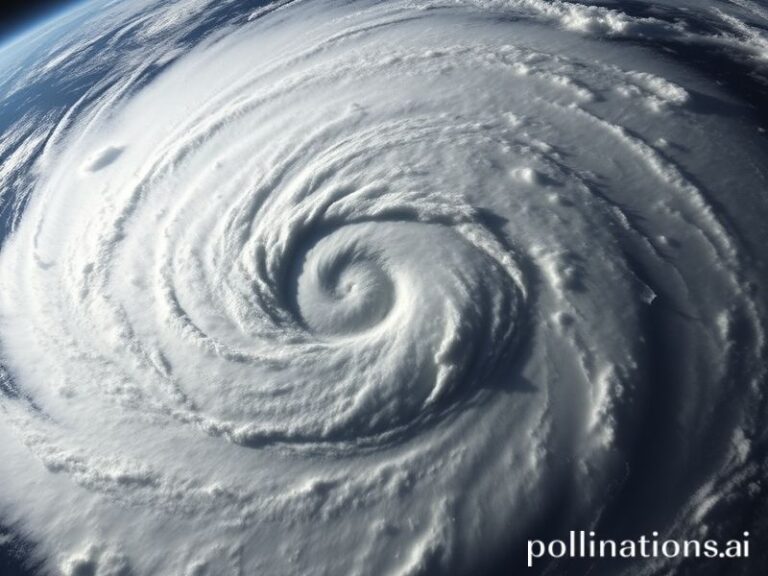Global Kickabout: Why Tonight’s Football Match Is a Geopolitical Puppet Show Disguised as a Game
Football on TV Tonight: 90 Minutes of Global Theatre, Sponsored by an Online Casino You’ve Never Heard Of
Bylined from a hotel mini-bar in Doha, where the peanuts cost more than my first apartment.
Tonight, somewhere between the war headlines and the weather report, a ball will be kicked on your screen and half the planet will inhale in unison. It doesn’t matter if it’s the Champions League quarter-final in Madrid, a World Cup qualifier in Tashkent, or a glorified testimonial in Orlando—every broadcast is now a geopolitical act. The pixels that carry the match are routed through under-sea cables guarded by navies, bounced off satellites with military dual-use licenses, and compressed by algorithms trained on your guilty streaming habits. In other words, that “harmless Tuesday night fixture” is a stealth summit where soft power shakes hands with hard cash.
Consider the cast list. There’s the Qatari broadcaster whose ticker runs stock prices for LNG tankers while the corner flag flaps in the wind. There’s the London studio pundit who once fronted a human-rights campaign but now fronts a gambling app with the moral compass of a roulette wheel. And somewhere in the director’s truck sits a tech sergeant toggling between crowd-noise filters and instructions to cut away if the ultras unveil a banner that might upset a sponsor. The beautiful game, indeed—beautifully choreographed.
Meanwhile, the fans themselves have become export products. When Bayern fans wave “15 Euro tickets now!” placards, the image is instantly memed by Atlético ultras, then screen-grabbed by Singaporean day-traders who short the club’s parent company before halftime. A protest in Munich becomes arbitrage in milliseconds; capitalism has finally achieved gegenpressing.
Don’t overlook the geopolitical subplot running along the touchline. Tonight’s match in Riyadh features two European clubs whose owners are currently under separate U.S. congressional inquiries. One is accused of laundering reputation, the other of laundering, well, money. The commentators will tactfully call it “sportswashing” between replays of a toothpaste advert. Viewers at home will tweet “Make it stop” while ordering the very same toothpaste via a QR code flashed onscreen. Resistance, it turns out, is purchasable in travel-size tubes.
And then there are the players themselves—stateless mercenaries in designer boots. The Ivorian striker who once fled civil war now wears “Visit Rwanda” on his sleeve, a slogan that manages to be both tourism pitch and historical contradiction. The Brazilian prodigy’s transfer fee is denominated in cryptocurrency so volatile it could wipe out a small island economy by extra time. Somewhere his childhood friends watch on a cracked phone screen in a favela whose power grid flickers every time the city’s new bitcoin mine boots up. Irony is no longer dead; it’s on a five-year contract with a sell-on clause.
Back in the commentary box, the pundits attempt gravitas. They compare tonight’s tactical tweak to the Anschluss, because hyperbole is the only language left that hasn’t been trademarked by a betting sponsor. One ex-pro reminisces about “pure football” in the 90s, conveniently forgetting the 90s also featured match-fixing scandals, heroin-smuggling goalkeepers, and referees on the take. Nostalgia, like a well-hit free kick, bends both ways.
So why does any of this matter? Because for those 90 minutes, borders soften. A pub in Lagos erupts at the same VAR decision as a living room in Reykjavik. A Syrian refugee camp streams the game on a cracked laptop while a blockchain billionaire watches on his yacht. The absurdity is that this shared pulse still happens—despite the paywalls, the propaganda, and the ever-present threat of a buffering icon. Football on TV tonight isn’t escapism; it’s the last communal campfire before the algorithms figure out how to individualize oxygen.
Full-time whistle approaches. The winning goal will be replayed in super-slow motion, each frame sponsored by a different streaming platform. Somewhere, a data center hums louder, burning electricity like a small nation. And in that glow, we all lean closer to the screen, pretending not to notice the world burning just outside the frame.







